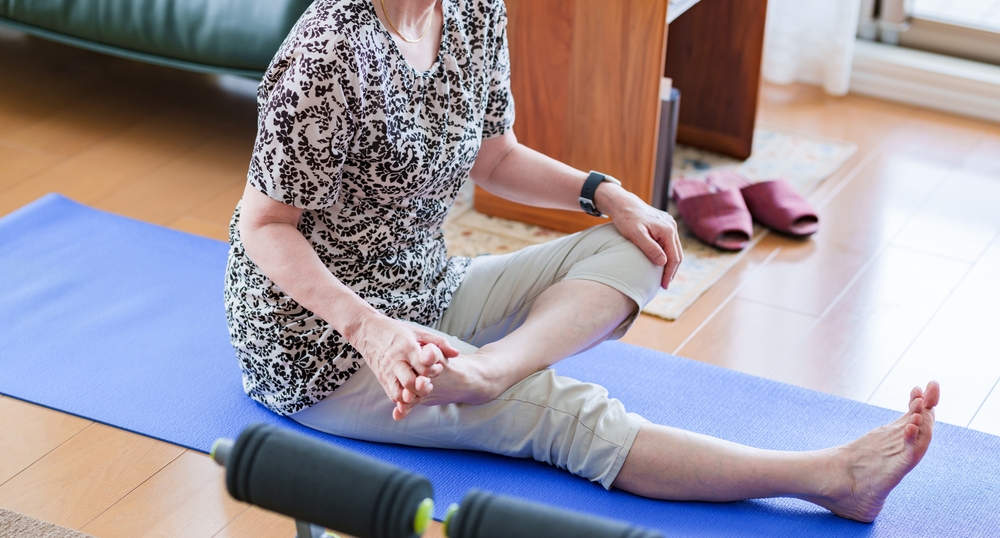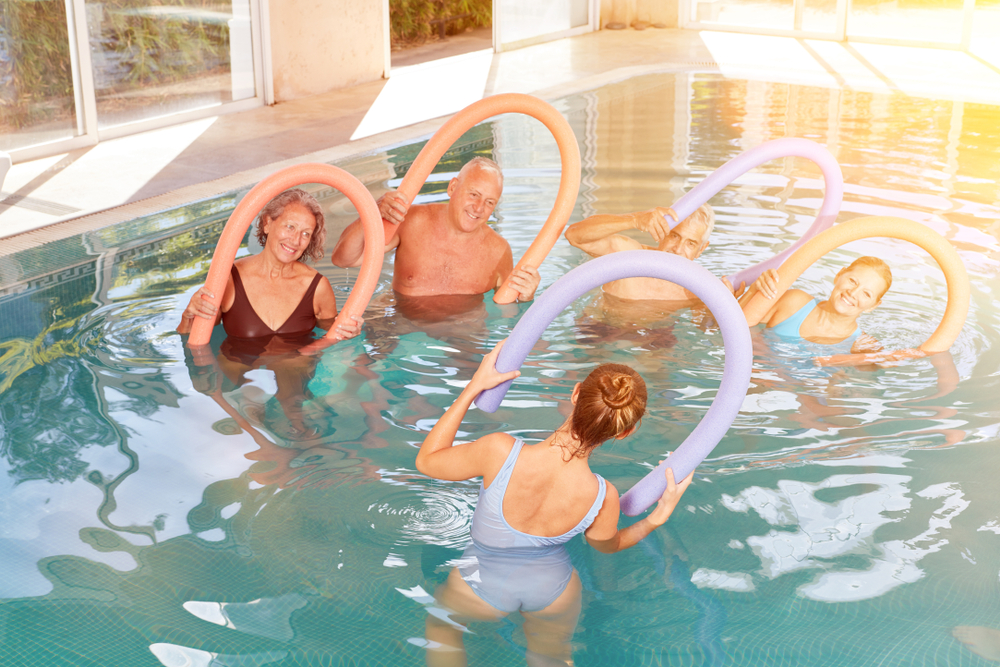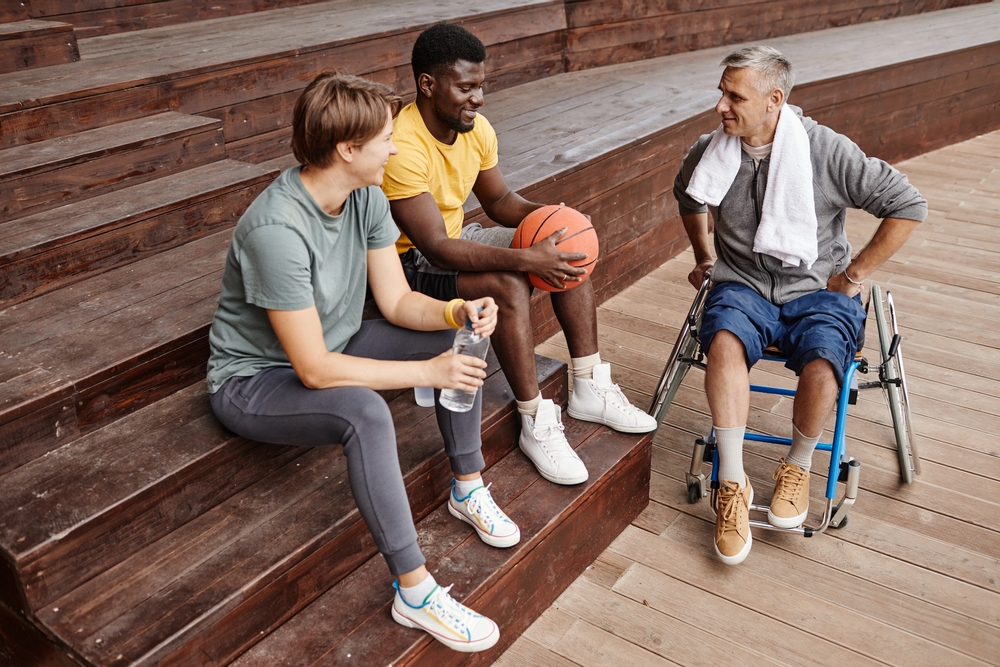Do you want to relax, surpass yourself, sharpen your team or competitive spirit or shape the body of your dreams? There are many reasons to practice a sporting activity. But we often forget that physical activity is also and above all a guarantee of good health. As obesity and overweight have been increasing since the 1960s, there has been a parallel significant decline in our physical activity, a trend accentuated by the health crisis that has caused harmful upheavals in our eating and exercise habits. In a report from May 2022, the World Health Organization (WHO) even speaks of an epidemic. It is therefore urgently necessary to start exercising (again) and to encourage everything that contributes to the promotion of physical activity. Deciphering the situation with Valérie Fourneyron, physician and former Sports Minister under François Hollande.
In fact, the numbers are frightening: Today, physical inactivity is the cause of one in ten deaths. “It’s more than tobacco”, laments Valerie Fourneyron. For those who now hold the position of chairman of the Independent Control Authority of the World Anti-Doping Agency, making the link between sport and health is a big deal. Because physical activity at any age affects development, mental well-being and physical health, the doctor recalls.
A public health tool
“Sport is primarily a public health tool. In France, 45% of adults are overweight or obese, as are a third of children aged 2 to 7 years. It’s absolutely dramatic when you look at all the conditions associated with this sedentary lifestyle: chronic diseases, cardiovascular disease, cancers, etc. As a sports doctor and public actor, I think there’s a lot at stake.”
Valérie Fourneyron, Minister of Sport under François Hollande and doctor
During her term as MP for the 1st constituency of Seine-Maritime, Valérie Fourneyron vigorously defended an amendment under the health law of 2016. The goal? Open the possibility of prescribing 100% physical activity adapted to patients with long-term illness, representing 13 million people in France. “The idea was to incorporate physical activity into their care pathway by prescribing a practice adapted to their pathology, their limits and their physical shape.”

Since then, patients with cardiovascular disease, cancer, diabetes or mental pathologies such as depression, schizophrenia or neurodegenerative diseases such as Alzheimer’s, can benefit from these regulations† “For these people, physical activity really improves pathologyunderlines the former commissioner. We have a therapeutic and non-drug approach, and that is essential.”
Prevent instead of cure
Integrating physical activity into your daily routine is: reduce the risk of cardiovascular disease or obesity, but also take care of your joints and bones† In other words, exercising, or at least staying active, helps prevent a number of diseases associated with a sedentary lifestyle. This notion of prevention is essential, recalls the former sports minister.
“We often mention Canada and the Scandinavian countries as an example in this area. There are many leisure initiatives, especially in EHPADs, which aim to democratize the practice of sport. And that’s not surprising, because in general Scandinavians have a culture that is more focused on public health and less on care. In France it is the other way around: we have a health policy, not a health policy in the broad sense. We tend to wait until we are sick to be treated.”
Valérie Fourneyron, Minister of Sport under François Hollande and doctor
It is this public health policy in which prevention has its place that Valérie Fourneyron hopes to see emerge in France to limit the risks of a sedentary lifestyle.
Changing our relationship with sport
Making sport an instrument for health prevention is mainly due to the image that practitioners have of it. In France, according to the barometer of sports practices of the National Institute of Youth and People’s Education (Injep) published in 2018, health is certainly the main motivation to play sports for 59% of the over-70s, but this figure drops to 31% only among 15-year-olds. 19 year olds. For respondents aged 40 to 49, relaxation is the most important reason for exercising.

In other words, as you get older and health problems increase, you become more aware of the importance of exercise in maintaining your health.
“To get the support of as many people as possible, you need to start with: change your view of sports. The word sport is associated in our society with competition, clubs, regular training, achievement.”
Valérie Fourneyron, Minister of Sport under François Hollande and doctor
Aspects of sport that can impress some, even disgust them and keep them away from any physical activity…
However, staying physically active doesn’t necessarily mean exercising. “Coincidentally, I prescribed elderly people with various risk factors (diabetes, obesity, cardiovascular problems) to get a dog, remembers the doctor† They are going to take it out twice a day, which is cheaper than many prescription drugs!”
Make sports a healthy appointment
From the start of the 2022 school year, French nursery and primary school students will benefit from: 30 minutes a day of physical activity at school. A good way to establish a virtuous routine from an early age. “If we want to change the mindset and change our relationship with sport, we have to do it from the beginning. School is where it all happens. It has an essential role to play in this metamorphosis of society”says the doctor.
More generally, the entire public sphere also has a responsibility in this area. “The government is already doing a lot to facilitate daily sports practice. In my city of Rouen, the quays have been made car-free to encourage walking and running. We have installed benches for the elders, set up the schoolyards so that the children can move more playfully, freed up aquagym areas for seniors in the swimming pools… These living habits are important for the future.”

The former mayor of Rouen is also a member of the Pour une France en forme association, which aims to benefit from the organization of the Olympic Games in Paris in 2024. “We are working on the ‘health heritage’ dimension of this event. We all believe that France should be more active and sporty after the 2024 Olympics.”
And there are many associations, federations and sports clubs that are committed to the democratization of sport for certain target groups. “The number of sports health departments in clubs has increased considerably and that is good news. So we’ve seen periods of time for people who have had diseases multiply. This applies in particular to the sports and cancer sections.”
Indeed, the doctor reminds that physical activity is an element that not only limits fatigue during chemotherapy, but also reduces the risk of recurrence† “In the case of breast cancer, which is still the deadliest, it reduces recurrence by 30%.”
Sports and mental health
When we think of sports and health, we generally make the connection between physical activity and its benefits to the body. However, it has just as many beneficial effects on mental health. It is therefore no coincidence that many associations place sports practice at the center of their approach to support people with depression, burnout or psychological problems† This is particularly the case for the “I move for my morale” program, launched during the first incarceration by France Dépression and the Active TerHappy foundation.
Sport is a tool for emancipation, it allows you to regain self-confidence in the most difficult moments of life. Thanks to the collective and surpassing yourself, the association Comme les Autres . offers “Social support fueled by sport and excitement for people with motor disabilities after an accident”, we can read on his site. It was made by Michaël Jéremiasz, wheelchair tennis champion and standard-bearer of the French delegation at the opening ceremony of the 2016 Paralympic Games, himself a spinal cord injury after a skiing accident.

There is no doubt that sport therefore has a place in the care pathway for people with mental illness.
“Just as oncologists have learned to advise their patients undergoing chemotherapy to engage in physical activity, sport should be more present in psychiatrists’ prescribing and that it can dispel drugs such as antidepressants or anxiolytics, at least in part.” †
Valérie Fourneyron, Minister of Sport under François Hollande and doctor
“And this obviously requires an evolution in the training of doctors, therapists and psychiatrists”she decides.
As our food gets richer and the sedentary lifestyle gains ground, our bodies suffer from the lack of activity. It is urgent to get them moving again, for our physical and mental health.
This article is brought to you by the editors of POSITIVR with the support of the EPSA Foundation.